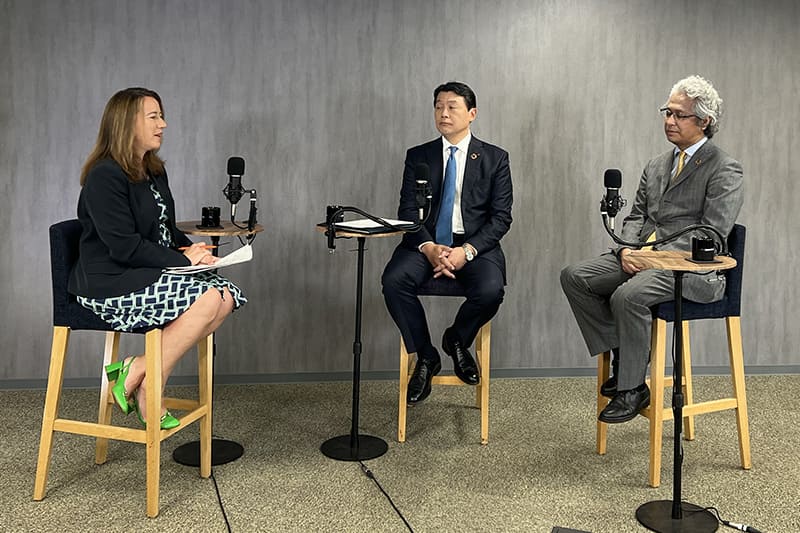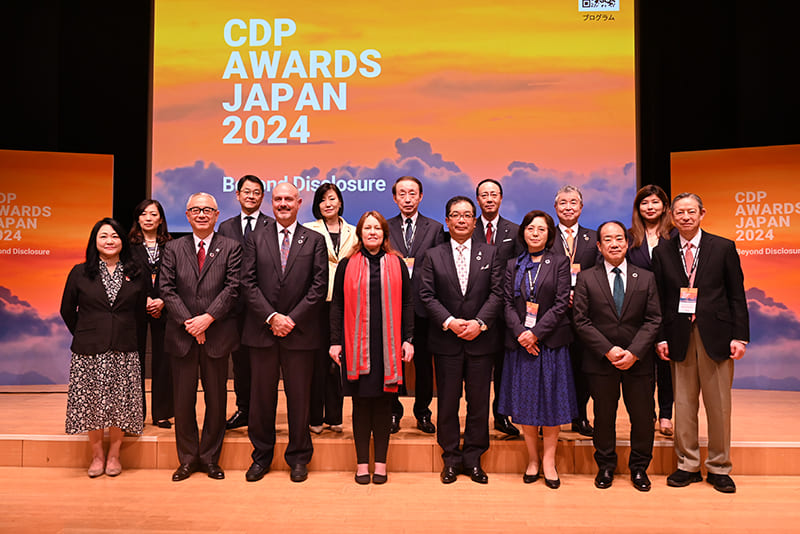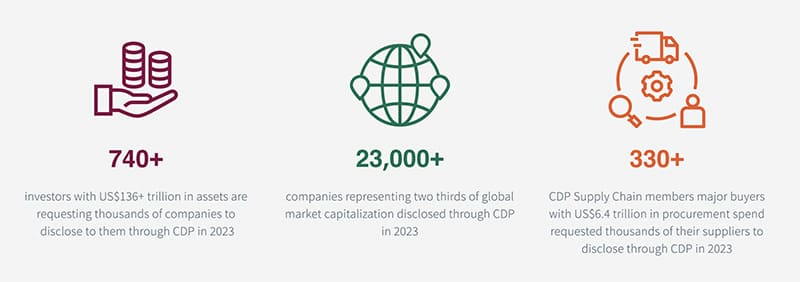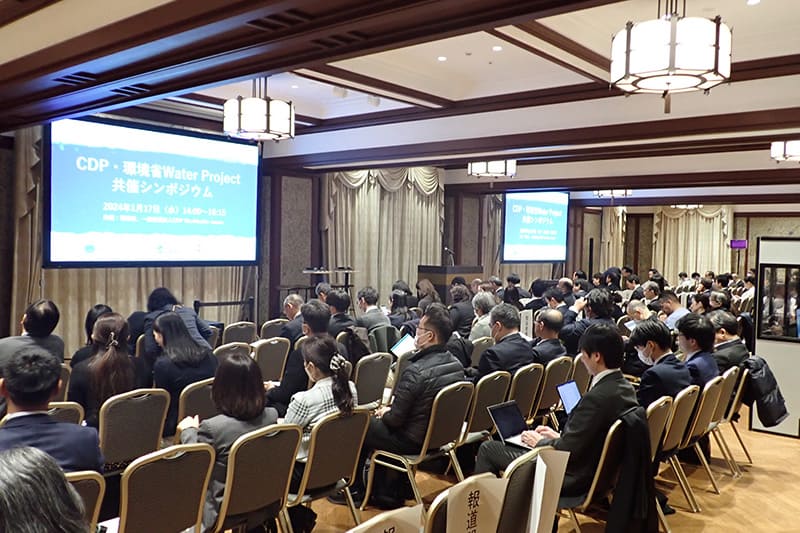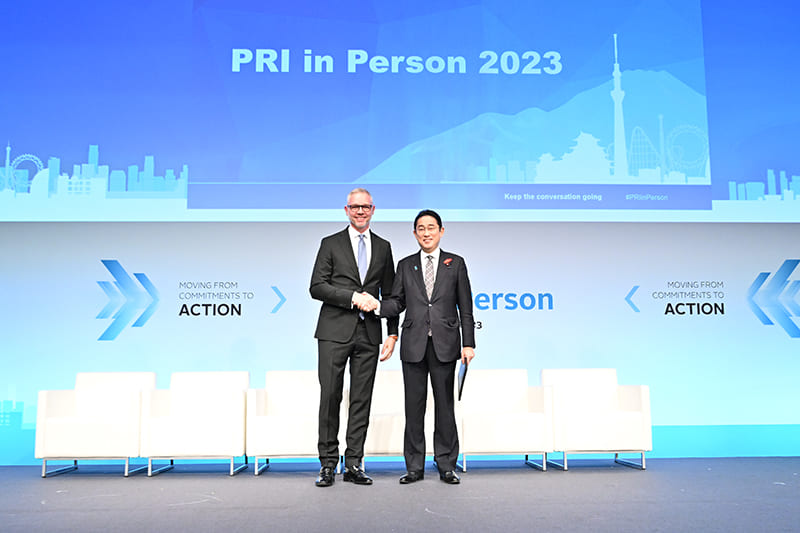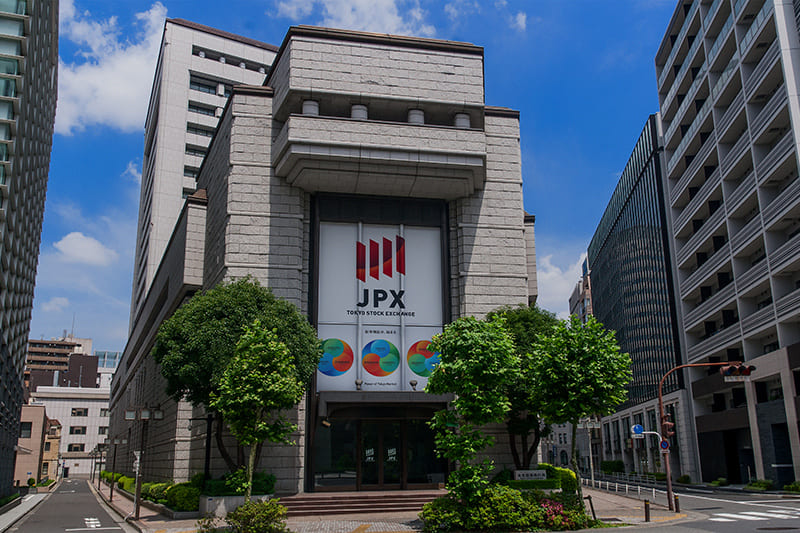November 01, 2024
CDP event examines efforts on cutting emissions in supply chains
Media partner
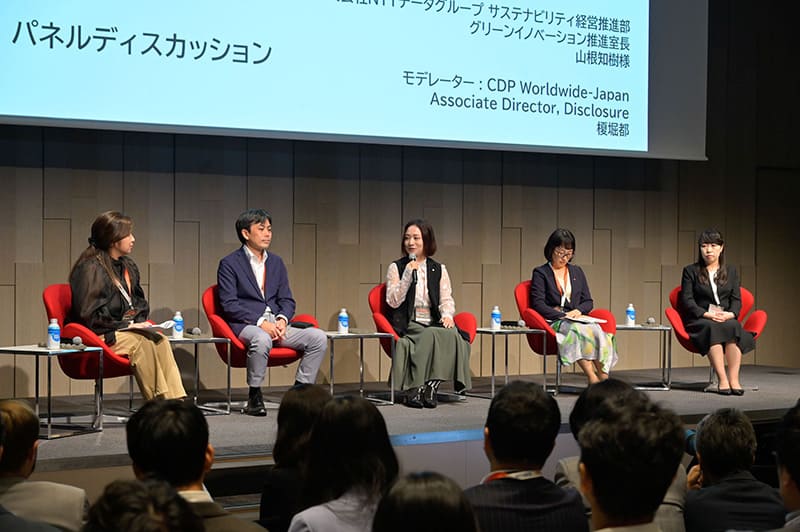
CDP, the global non-profit which runs the world’s environmental disclosure system, held an annual event on Oct. 4 that shed light on the increasing impact of corporate supply chains’ carbon emissions.
“I’ve never felt a stronger sense of crisis over climate change than this summer because of what is going on around us,” CDP Worldwide-Japan’s market lead, Emi Matsukawa, told the audience in the opening speech. Data showed record-high heat across the world this summer. In Japan, the average temperature in July broke the record for the month, according to the Meteorological Agency.
At the CDP Supply Chain Japan Summit, the London-headquartered nonprofit said there is still a wide gap between the global carbon reduction goal and what Japan needs to do to achieve its goal of net-zero emissions. “We need your efforts in the private sector. But at the same time, I believe there is also demand for new business,” Matsukawa said. “And those who are aware of such demand are those who gather today — who are willing to review their entire supply chain’s impact on carbon reduction.”
Companies are facing growing calls to manage the greenhouse gases emitted in their supply chains due to the emissions’ huge environmental impacts and amid stricter global regulations.
In the keynote speech, professor Takeshi Mizuguchi, the president of the Takasaki City University of Economics, explained why supply chains are drawing the attention of regulators and investors. Amid growing pressure for the disclosure of climate and other sustainability-related data, companies around the world are trying to manage a variety of risks in their supply chains involving the procurement of water and other resources, the continuity of business deals, their reputations on human rights and labor conditions, and the degradation of their corporate value due to sustainability issues.
“In addition to these directly related risks, we need to pay attention to bigger risks that we are facing now,” he said, involving interrelated economic, social and environmental systems. He added that corporate values would suffer without government policy support.
According to CDP, Scope 3 supply chain emissions are on average 26 times larger than the total of companies’ own Scope 1 and 2 direct and indirect emissions. “Unfortunately, still only 15% of the 23,000 companies that disclosed to CDP last year had set targets to reduce their upstream Scope 3 emissions,” said Simon Fischweicher, CDP’s director of supply chain and reporter service. Only 41% of companies are engaging their suppliers through the CDP’s disclosure platform, he said, and fewer still are assessing the climate risks in their supply chain or setting Scope 3 reduction targets, he added.
“Therefore, we need to do more to engage with the private sector to understand the importance of supply chain sustainability, set targets for Scope 3 emissions and work with their suppliers to reduce those supply chain emissions,” he told the audience.
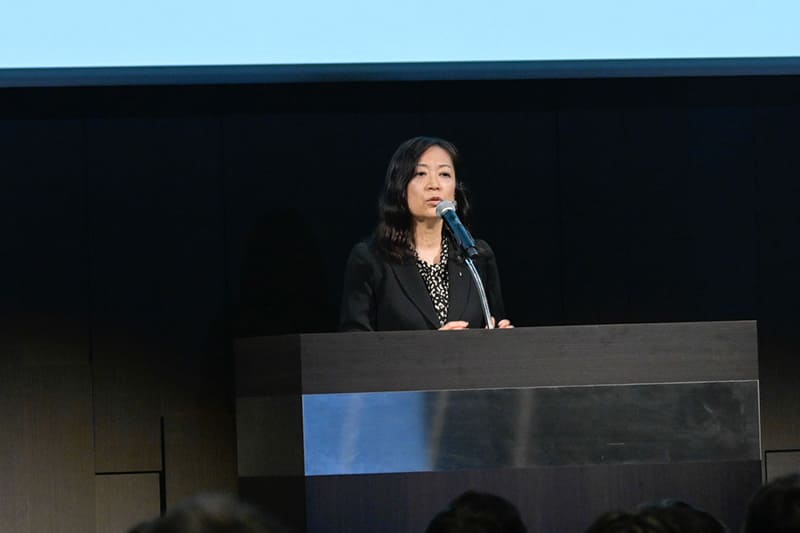
During the event, three Japanese ministries explained their policies to tackle the increasingly urgent climate issues.
The Ministry of Economy, Trade and Industry, which is spearheading an idea to create a domestic “GX” (green transformation) market, said it is important to support higher value for products made from environmentally friendly materials. In order to do that, the country needs to introduce carbon pricing on greenhouse gas emissions, which would elevate green products’ price competitiveness. The country also needs to help create additional value for such goods in other ways, for example by disclosing the ratio of nontoxic materials used in making them, said Nobuyoshi Wakabayashi, director of the ministry’s environmental economy office.
The Ministry of the Environment thinks it is important for companies to make their measures on carbon reduction transparent to investors and suppliers amid a growing emphasis on ESG (environmental, social and governance) investment because such measures lead to higher corporate value and better business opportunities. To that end, the ministry helps companies calculate their carbon emissions throughout their value chain by developing guidelines and operating websites providing related information.
The ministry also has compiled guidebooks to promote corporate engagement with suppliers to take steps to reduce Scope 3 emissions and has released related information on its online value-chain platform.
“We place importance on corporate engagement because companies need to tackle this issue with their whole supply chains,” Takeo Sugii, director for the ministry’s office for decarbonized business promotion, said in a speech.
The Ministry of Land, Infrastructure, Transport and Tourism promotes decarbonization in the transportation sector. For instance, it supports next-generation vehicles by building electric vehicle chargers and hydrogen stations, and the development of zero-emission vessels fueled by hydrogen or ammonia. In the construction area, the ministry promotes zero-emission houses while requiring new buildings to follow energy saving regulations. It also supports the introduction of renewable energy at the country’s airports, seaports, train stations and public housing. As for biodiversity issues, the ministry is working on the introduction of green infrastructure in urban planning and public works while accelerating efforts to capture carbon dioxide by taking advantage of ocean ecosystems, said Mitsuru Shimizu, director of the ministry’s environmental policy division.
Aiming to highlight issues related to a sustainable society, The Japan Times gave its support to this event by becoming a media partner.


